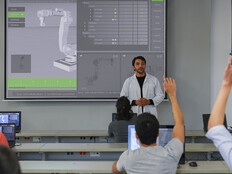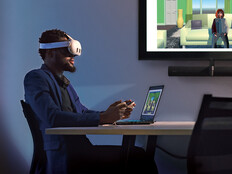Nicole Lee | Rutgers University
If your college campus or residence is based in an urban environment, high levels of noise are probably familiar. Blaring train horns, traffic, bustling restaurants, outdoor entertainment and construction are a few sources of sound typical in urban environments. To some, the ambient sounds of this environment are a pleasant comfort. To others, they are an annoyance, to say the least.
However, high noise levels are not limited to campuses located in cities. College institutions are very active and lively, with various activities and events constantly occurring throughout the campus. If you’re someone who enjoys quiet in a busy environment, especially while studying, noise-canceling headphones are an absolute necessity.
Noise-canceling headphone — devices rising in popularity, especially in recent years — are preferred among college students for their ability to produce audio while blocking background noise. This is especially useful to college students who enjoy listening to music while studying. The Sony WH-1000XM series and Apple AirPods Max are popular among college students because their aesthetics and technology go beyond that of competitors.
The benefits of noise-canceling devices include:
- improved concentration
- decreased stress
- transparency mode for when you need to hear surrounding sounds
REVIEW: See how Apple AirPods Max headphones bring clarity to remote learning.
Noise cancelation also protects your ears from noise pollution, which is defined as any sound that reaches harmful noise levels. According to the Centers for Disease Control and Prevention, prolonged exposure to a noise level of 70 decibels and above may damage your hearing. Above 120dB, immediate damage can be inflicted. For reference, the CDC defines a normal conversation to be about 60dB.
In addition to hearing loss, prolonged noise pollution exposure can lead to:
- decreased sleep quality and quantity
- increased stress
- hypertension
- reduced learning and productivity
- endocrine disruption
- heart disease
- permanent hearing loss and tinnitus
However, using noise-canceling technology can significantly decrease exposure to noise pollution and resulting health disparities.
Noise-canceling headphones are beneficial devices for college students, allowing students to increase productivity and concentration while avoiding the underlying health effects of exposure to noise.
Colin Duffy | Kent State University
As technology continues to advance at an incredible rate, it is essential that universities provide the latest and greatest educational tools to ensure their students are ready to enter the rapidly changing workforce. Smart whiteboards are one example of such technology.
Smart whiteboards are interactive displays that allow students to draw, write and present information digitally. These whiteboards are equipped with touch-screen capabilities and high speed internet, and they enable students to save and share their work online. Students can collaborate by sharing ideas and strategies to solve complex problems in an open, interactive manner.
The computer science department at my university needs renovations, including new classrooms and technology. Smart whiteboards will provide students with an improved learning experience and create opportunities for students with disabilities to take part in lectures and group projects. They also are a cost-effective option for a tech refresh.
MORE ON EDTECH: This Samsung whiteboard enhances classroom collaboration.










